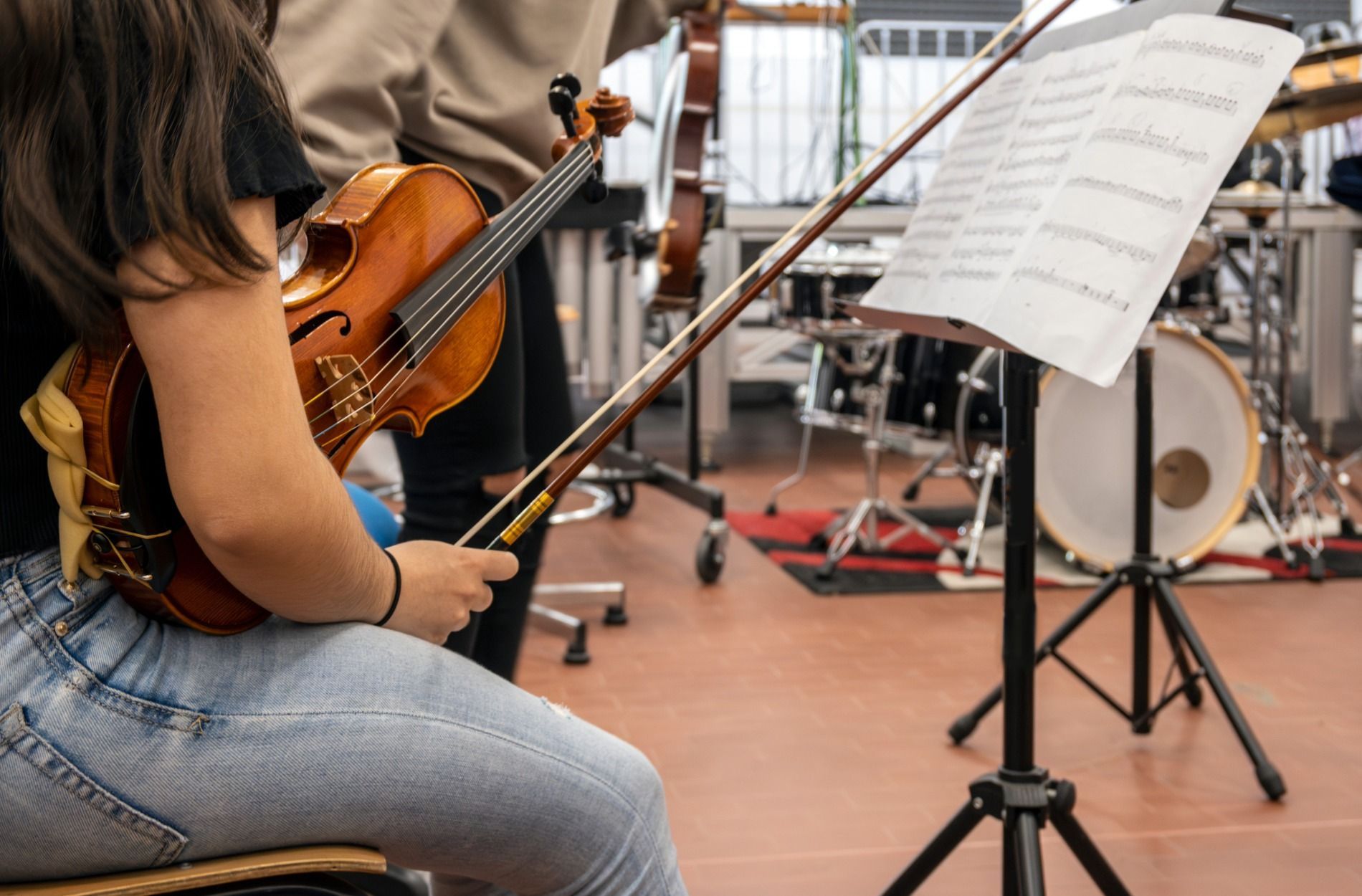
Providing an environment for students to learn music
Creating a supportive environment where students can learn music is both a rewarding and important pursuit. Whether they're strumming guitar strings or playing the piano, a structured setting helps young musicians develop their skills. This kind of nurturing atmosphere builds confidence and sparks a lifelong love for music. When families and teachers work together to offer support at home and in the lesson room, students grow both musically and personally.
A well-planned music environment encourages discipline, progress, and consistency. With a few guiding strategies, families can shape a learning space that encourages creativity and steady growth. From setting practice routines to attending live concerts, there are many ways to help students stay engaged and inspired.
Establish a Consistent Practice Routine
Having a regular practice routine is one of the best ways to help students improve. Setting aside the same time each day or targeting a few specific days during the week builds a positive habit. This consistency creates a sense of structure that helps students stay focused and make real progress.
Here are some simple ways to make practice feel like a natural part of the day:
- Set a regular time:
Choose a daily time slot or certain days each week when the student practices. This helps music become part of the weekly flow instead of a last-minute task.
- Create a dedicated space:
A quiet, tidy area that’s free of distractions allows students to focus on their playing. Whether it’s a corner of a room or a small nook, having a specific place matters.
- Keep it balanced:
Don’t push for long hours every day. A short, focused practice session is more useful than an exhausted, distracted one. Breaks are helpful to make sure students stay fresh and enjoy their time.
- Use a practice chart:
Young students especially like to see their progress. Visual charts or basic checklists can keep them motivated and help track consistency.
Creating a solid practice routine might take a bit of trial and error, but once it sticks, students feel more confident. They know what to expect and are more likely to approach each piece with energy and focus.
Exposure to Live Music
One of the most inspiring things for a young musician is seeing a live concert. Watching talented players perform can light a fire inside students that keeps them excited to learn. Sitting in a concert hall, hearing real instruments, and feeling the energy of a live performance can be far more powerful than anything on a screen.
Luckily, Dallas and the surrounding areas have plenty of live music events to choose from:
- Local orchestras:
The Plano Symphony and the Dallas Symphony Orchestra offer live performances close to home. Many of them take place at the Meyerson Symphony Center, which is worth experiencing for its sound and atmosphere alone.
- Summer festivals:
The PianoTexas International Festival and Academy offers opportunities to hear advanced pianists in action. These concerts show high-level playing and can be very inspiring for developing students.
- Chamber music:
For those who want a close-up experience, smaller concerts offered by the Dallas Chamber Music Society and Chamber Music International feature incredible performers in more intimate settings.
When families make the effort to attend concerts regularly, students are reminded why they practice. They get to hear music in its full form and often find themselves thinking, “I want to play like that someday.”
Encourage Listening to Classical Music
Listening is just as important as playing. Students absorb so much when they hear great music often. One easy way to start is by tuning into Classical 101.1 on the radio. It’s free and plays a wide variety of pieces from well-known composers across different time periods.
Many young musicians are introduced to music through classical pieces. Even students who eventually lean toward other styles, like pop or jazz, benefit from a solid base in classical. These works are often more structured and provide a strong foundation in technique and expression.
When students listen regularly, they start to recognize styles and patterns. They become more familiar with how pieces are shaped and what makes each composer unique. Without even realizing it, they’re training their ear, which will help when learning new pieces or even playing by memory.
Playing music is more than just hand movement or reading notes. It’s about expression, phrasing, and understanding. The best way to gain that understanding is simply by listening.
Create a Reward System for Young Students
Younger students especially benefit from motivation beyond just making progress. That’s where a reward system comes in. Recognizing wins—big or small—encourages children to keep putting in the work, turning practice into a fun and rewarding habit.
Here are a few ideas to keep motivation high:
- Sticker charts:
Kids love earning stickers for every completed practice session. It’s visual, fun, and builds a sense of pride in keeping up with daily goals.
- Small prizes:
A little prize after a week of consistent practice can go a long way. Think of items like a special pencil, a favorite snack, or a few extra minutes of screen time.
- Family performances:
Let your child perform one of their pieces for the family. This can be casual—in the living room or even over a video call with grandparents. It makes them feel supported and lets them show off what they’ve learned.
Rewards don’t need to be over-the-top. The goal is to create positive feedback that makes students feel good about their work. Small celebrations encourage consistency and keep students looking forward to what they’ll learn next.
Showcase Achievements Regularly
Sometimes, students don’t realize how far they’ve come until they show others what they can do. Taking time once a week for students to play something they’ve practiced in front of family makes a big difference. These mini-performances aren’t meant to be formal. It’s just a way to highlight effort and improvement.
When students get applause, smiles, or even positive comments from family members, it builds self-worth. The more they share, the more comfortable they become performing. This kind of encouragement reinforces what they learn during lessons and helps them stay connected to their goals.
Try choosing a day right before lessons for students to share with the family. It can serve as a review and get them excited for what’s next. This habit makes music something to be shared and enjoyed together, not just practiced alone.
Encourage Young Musicians to Thrive
Helping young musicians succeed means building an environment where they can grow confidently and joyfully. Regular practice times, real-life exposure to live performances, active listening, fun reward systems, and consistent recognition all play a part in making music a meaningful part of their lives.
When students feel supported at home and encouraged each week, they’re more likely to stay committed and curious. These habits build a foundation that stretches far beyond playing one piece or completing a single lesson. They create life-long learners who find joy in every measure of music they play.
For young musicians to truly flourish in their learning, the right support and environment make a world of difference. Learn how private piano lessons in Frisco
at the Music Institute of North Texas can offer the personalized guidance needed to grow skills, build confidence, and spark lasting enthusiasm for music. Discover how a nurturing approach can help your child stay motivated and reach their full musical potential.
